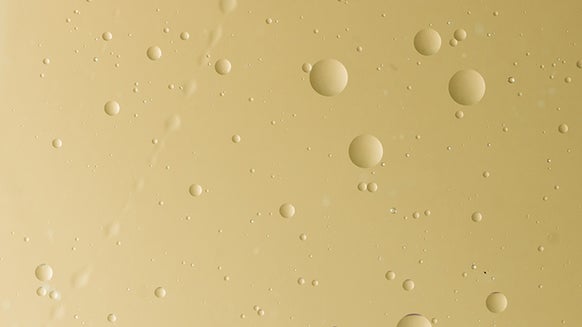An Introduction to Menopause

Menopause is a natural stage of life, yet for many it can feel surrounded by uncertainty. By understanding what menopause means, the stages involved, the typical age it begins, the symptoms it may bring, and how long it lasts, you can approach this transition with clarity and support. At ESPA, we believe in nurturing both skin and mind, creating rituals that help restore balance during every stage of life.
What is Menopause?
The menopause definition is simple: it marks the end of a woman’s monthly menstrual cycles due to lower hormone levels. Menopause is diagnosed after twelve consecutive months without a period. This is a natural biological process, not a medical condition. However, because the body undergoes significant hormonal changes, many women experience symptoms of menopause that can affect daily life, wellbeing, and skin health.
While menopause is most often discussed in relation to women, there is also a phenomenon referred to as male menopause. This involves a gradual reduction in testosterone levels and may bring about symptoms such as fatigue, mood swings, and reduced libido. Though different in cause and nature, both experiences highlight the importance of recognising hormonal transitions as part of ageing. However, this is not an exact parallel to the female menopause.
The Stages of Menopause
Menopause is not a single moment in time, but a journey through several stages:
Perimenopause
This is the transition phase leading up to menopause. Hormone levels, particularly oestrogen begin to fluctuate, often resulting in irregular periods and the onset of symptoms such as hot flushes, night sweats, and changes in skin. Perimenopause can begin years before the final menstrual period and typically lasts between four and eight years.
Menopause
Officially marked when a woman has gone 12 months without a period. This stage signifies the end of reproductive years. Symptoms of menopause, such as mood changes, dryness, and changes in sleep patterns, may be more noticeable during this time.
Postmenopause
This stage follows menopause and continues for the rest of life. While some symptoms gradually lessen, others, such as changes in bone density or skin texture, can remain. A supportive lifestyle and consistent self-care are particularly important during postmenopause.
Understanding these stages can help you prepare for the changes your body and skin may experience.
When Does Menopause Start?
One of the most common questions is: what age does menopause start? The average age of menopause in the UK is around 51. However, the age of menopausal onset can vary widely. Some women begin the perimenopause stage in their early forties, while others may not experience changes until later. Genetics, lifestyle, and overall health all play a role in determining the age of menopause.
Premature menopause, which occurs before the age of 40, affects a smaller number of women but is equally important to recognise. Identifying early changes and seeking medical support can help women navigate the transition with the right knowledge and care.
Menopause Symptoms
Every woman’s journey is unique, but some of the most common menopause symptoms include:
Hot flushes and night sweats
Mood changes, irritability, and difficulty sleeping
Reduced energy and changes in concentration
Vaginal dryness or discomfort
Itchiness in menopause, often linked to hormonal changes in the skin
Thinning hair and changes in skin texture
Changes in bone and muscle strength
These symptoms can vary in intensity and duration. Some women experience only a few mild effects, while others find the changes more disruptive. Understanding that these are natural responses to hormonal shifts can help reduce anxiety and support a more balanced outlook.
How Long Does Menopause Last?
Another common question is: how long does the menopause last? While the exact duration varies from woman to woman, the transition usually spans several years. Perimenopause, where symptoms are most noticeable, can last between four to eight years. Menopause itself is a marker point, while postmenopause lasts indefinitely. Some symptoms, such as hot flushes, may ease with time, while others, like skin dryness or reduced elasticity, may persist.
Recognising these timelines helps you plan for your self-care. It can also support more realistic expectations, reducing worry and empowering you to take proactive steps.
Menopause and Skin Health
Hormonal shifts during menopause can impact the skin significantly. Reduced oestrogen levels may cause skin to feel thinner, drier, and less elastic. This is why symptoms such as itchiness in menopause are common. The skin barrier function may weaken, leading to increased sensitivity and reduced natural hydration.
At ESPA, we have carefully developed menopause skincare designed to comfort, hydrate, and restore balance. For tailored advice on building a routine that addresses dryness, sensitivity, and dullness, read our guide: Essential Menopause Skincare Tips for Skin and Wellbeing.
Supporting Your Wellbeing During Menopause
Menopause is not only about physical changes. Emotional wellbeing is also impacted. Fluctuating hormone levels can contribute to mood shifts, sleep disruption, and feelings of stress. Finding rituals that encourage calm and mindfulness is invaluable. Creating a bedtime routine with calming oils, incorporating breathwork, or enjoying a warm bath can ease restlessness and support better rest.
Nutrition plays a key role during menopause. Eating a balanced diet rich in calcium, vitamin D, and whole foods helps support both skin and bone health. Exercise, whether strength training, yoga, or walking, can improve both mood and physical resilience. Practices such as meditation or journaling can also support emotional equilibrium.
The Meaning of Menopause Beyond Biology
Menopause is more than a biological milestone; it is a life stage that can bring renewed self-awareness and growth. While symptoms may feel challenging, many women also describe this time as one of empowerment, allowing them to reframe priorities and deepen self-care.
Understanding the menopause meaning in both physical and emotional terms helps to approach it with compassion and balance. With the right support, this transition can become a positive chapter of renewal, bringing not only challenges but also opportunities to focus on holistic wellbeing.
Where to Begin
If you are wondering how best to navigate menopause symptoms, begin with knowledge and self-care. Start by exploring our menopause skincare collection, tailored to soothe and restore your skin. Enhance your understanding with our resources, such as the Essential Menopause Skincare Tips blog. Together, these tools can help you nurture your body, mind, and skin through this natural transition.

ESPA Senior Copywriter. Alexa Castillo MA English Literature, University of St Andrews MsC Creative Writing, University of Edinburgh







